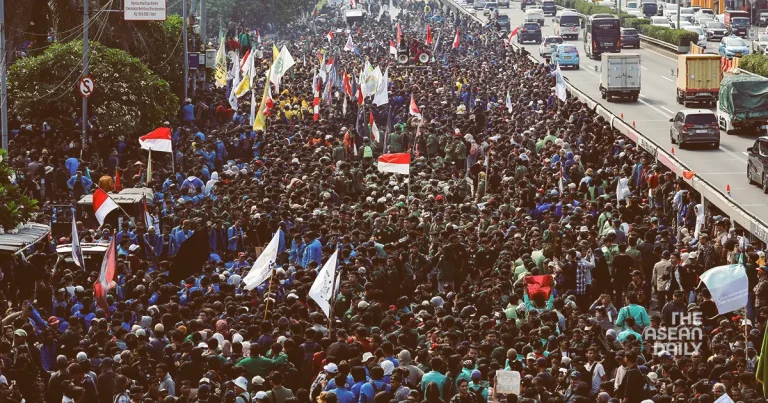23-8-2024 (JAKARTA) Indonesia’s parliament has postponed controversial changes to the country’s electoral laws following intense public outcry and violent protests in the capital. The proposed amendments, which critics argued would weaken opposition to the outgoing President Joko Widodo and his successor, Prabowo Subianto, sparked a wave of demonstrations across the archipelago nation.
The legislative body, dominated by supporters of President Widodo (commonly known as Jokowi) and President-elect Subianto, had initially planned to vote on reversing recent changes made by the constitutional court. These court-mandated alterations had effectively reopened the possibility for vocal government critics to participate in regional elections, most notably in the race for Jakarta’s governorship.
Earlier this week, parties backing Subianto had coalesced around a single candidate for the influential position of Jakarta governor, seemingly extinguishing the chances of the president-elect’s rival, Anies Baswedan. Under the existing rules for regional elections, established in 2016, Anies required backing from a party or coalition controlling at least 20% of seats in the local parliament.
However, Tuesday’s Constitutional Court ruling lowered this threshold to under 10%, potentially allowing Anies to secure a nomination from PDIP, the sole party yet to name a candidate. The national parliament’s attempt to revert to the previous threshold was seen by many as a direct challenge to the country’s highest court and a move to consolidate power while marginalising opposition voices.
The proposed legislation would have also paved the way for Jokowi’s youngest son, 29-year-old Kaesang Pangarep, to run in Central Java’s November elections by adjusting age requirements. This move further fueled accusations of nepotism against the outgoing president.
As tensions escalated, thousands of protesters converged outside parliament, brandishing signs decrying Jokowi’s perceived nepotism and alleged erosion of democratic principles. The situation took a violent turn as some demonstrators breached and set fire to part of the parliament gates, prompting security forces to respond with tear gas and water cannons.
Faced with mounting pressure, Deputy Parliament Speaker Sufmi Dasco Ahmad announced that deliberations on the electoral law changes would be deferred to the incoming parliament. This decision effectively maintains the status quo for the upcoming regional elections in November, allowing Anies Baswedan to potentially seek the Jakarta governorship if nominated by PDIP.
The controversy has laid bare a power struggle between different branches of government, with legal experts warning of a potential constitutional crisis. The unusual wave of protests reflects growing public frustration with what many perceive as the Jokowi administration’s attempts to entrench its influence beyond the president’s term.
This latest political upheaval follows a series of contentious developments, including last year’s constitutional court ruling that altered eligibility rules for elections, facilitating Jokowi’s eldest son’s successful vice-presidential bid alongside Prabowo Subianto.
As Jokowi prepares to leave office, his legacy appears increasingly complex. While maintaining strong personal popularity and boasting a robust economic record, his tenure has been marred by allegations of deepening corruption and a return to old-style patronage politics.
The parliament’s retreat on the electoral law changes marks a significant victory for civil society and democratic processes in Indonesia. However, it also underscores the ongoing challenges facing Southeast Asia’s largest democracy as it navigates the delicate balance between political stability and genuine democratic representation.




